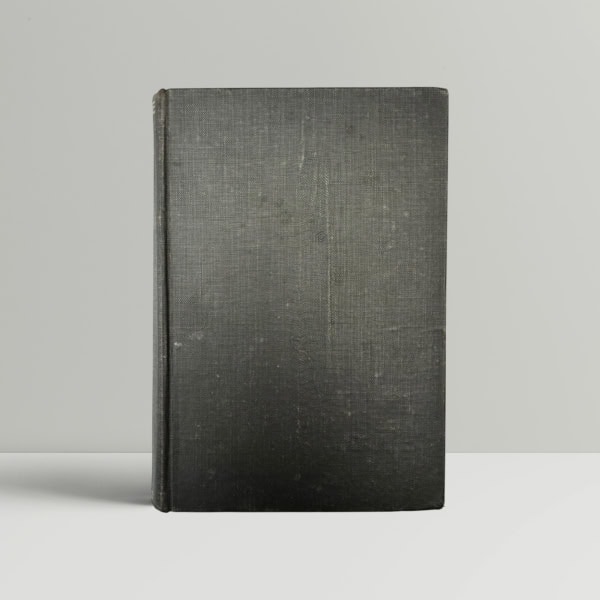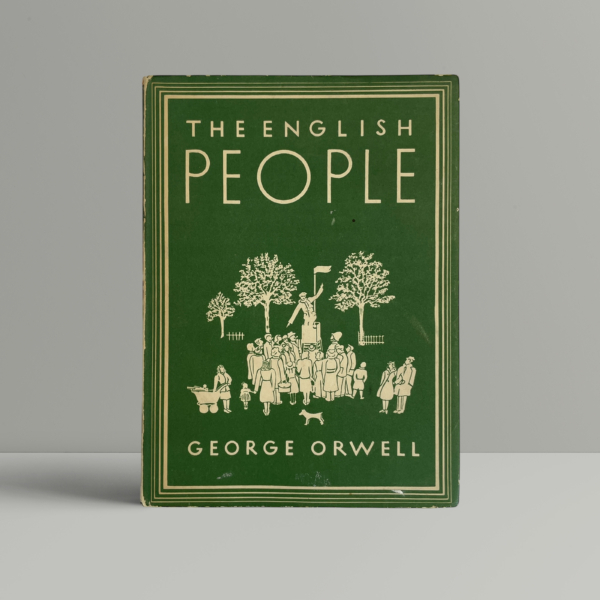We are open Sundays 10am - 4pm
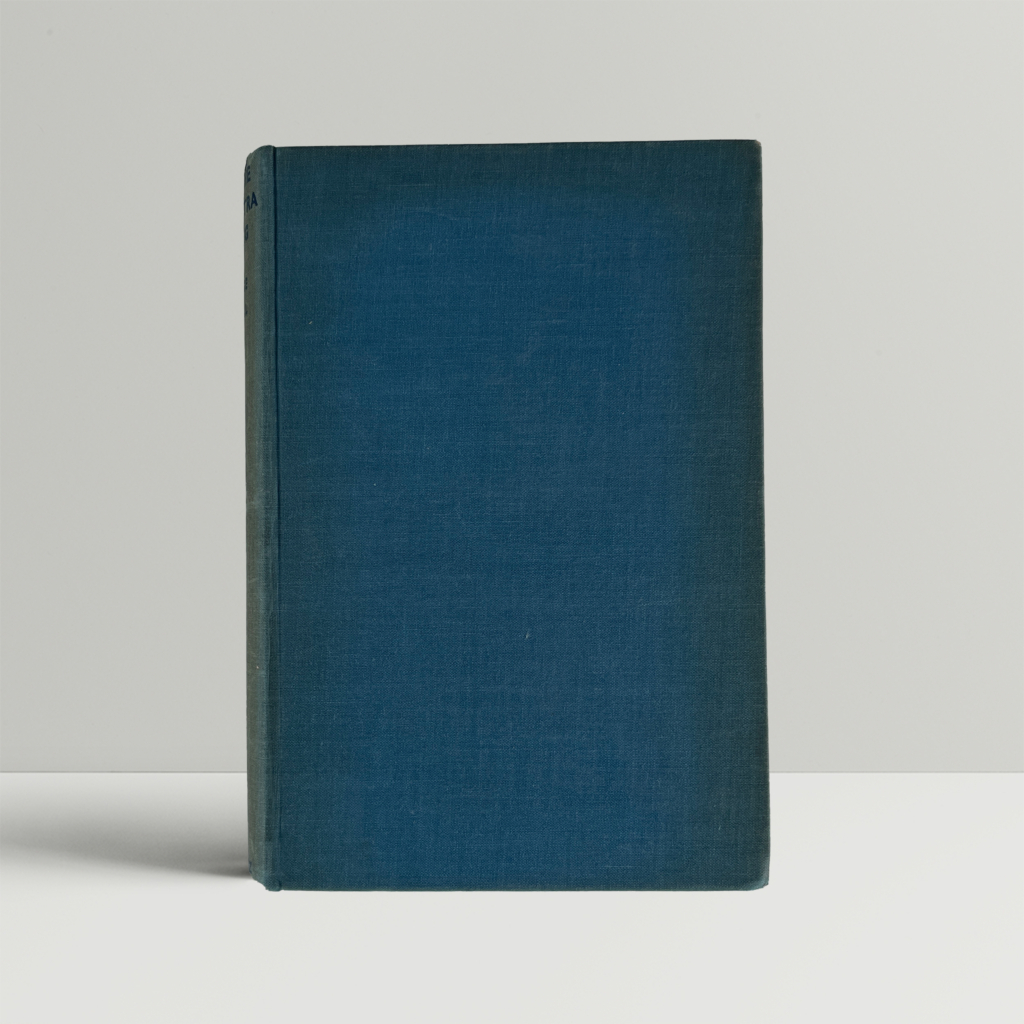
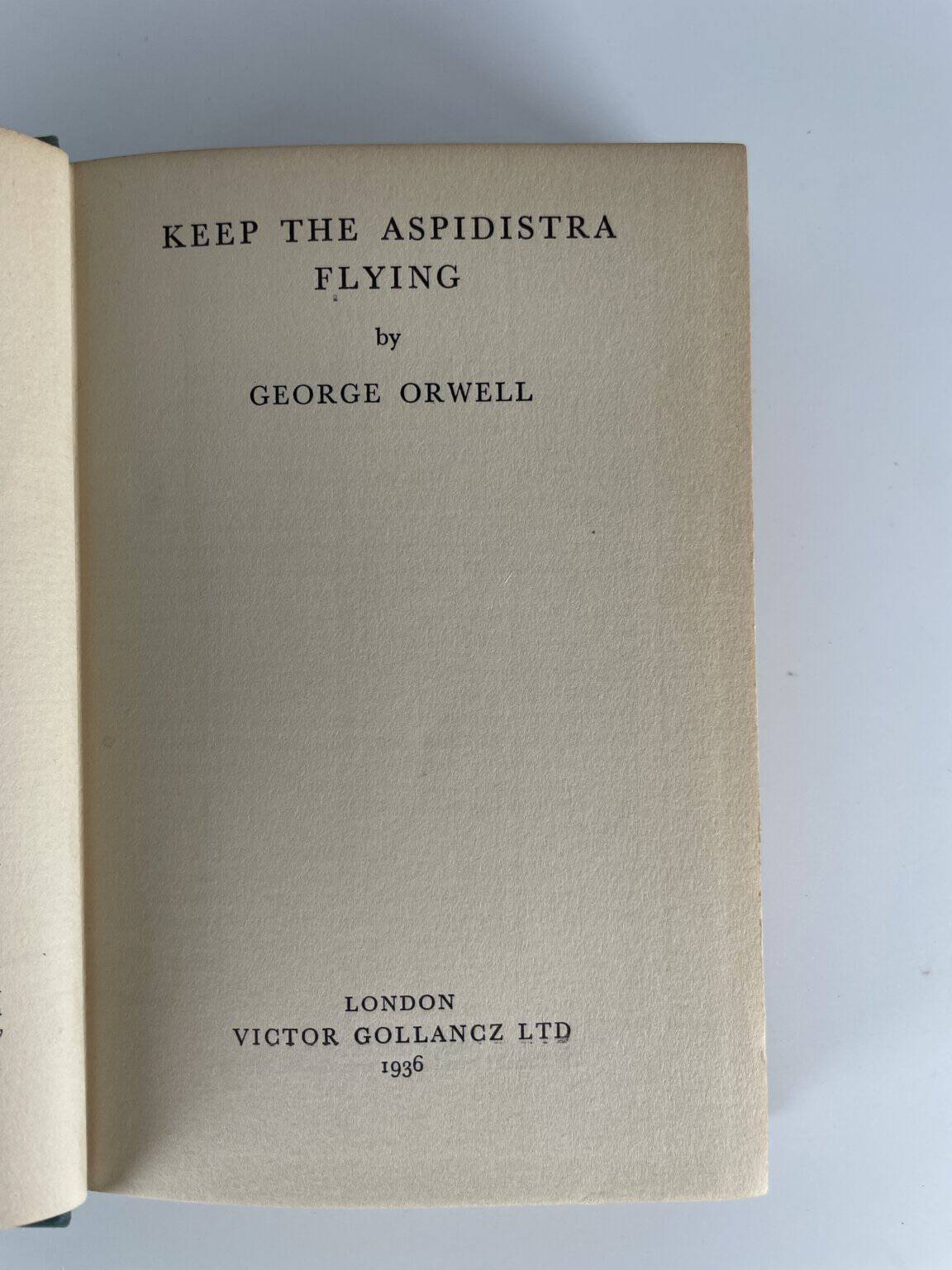
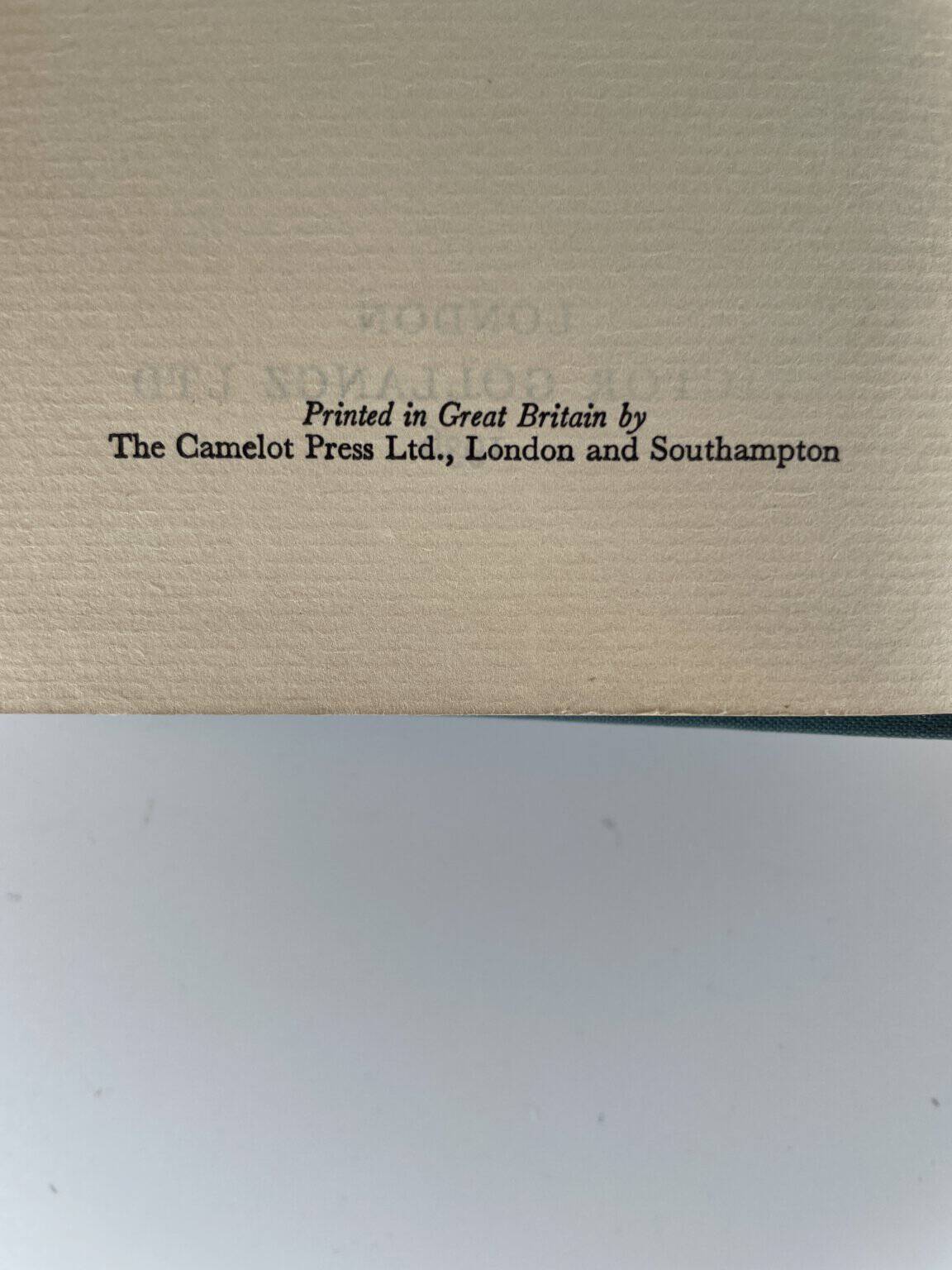
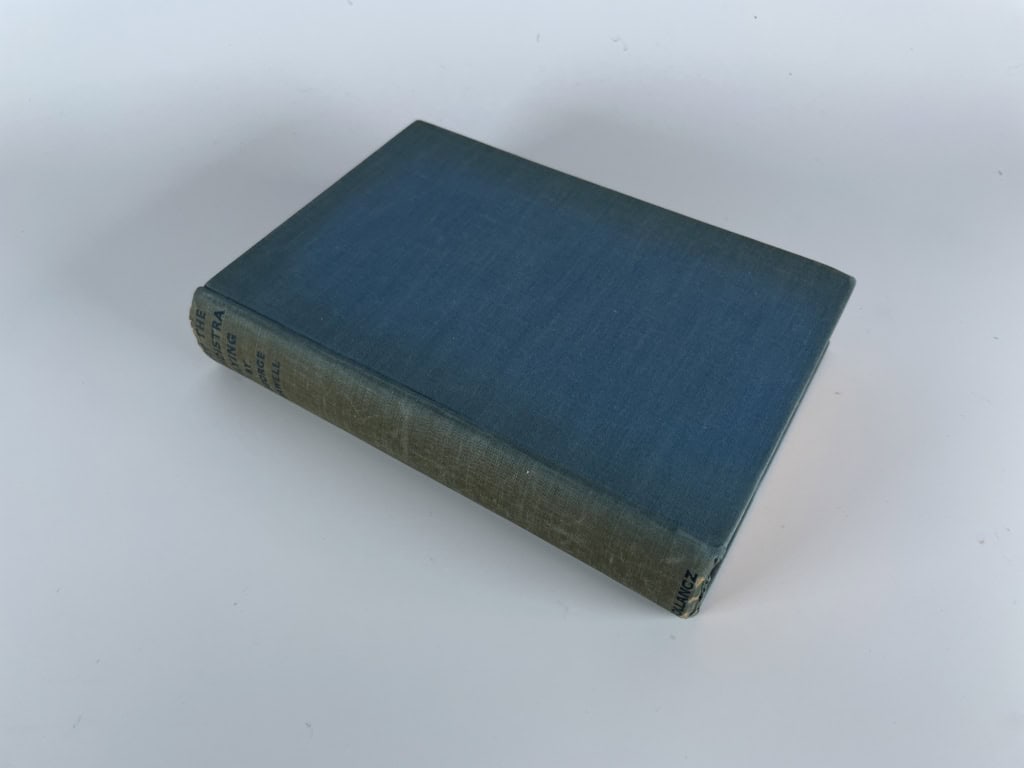

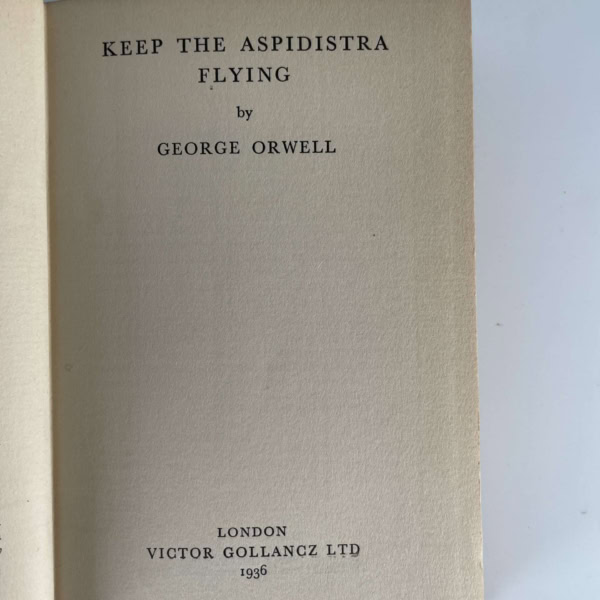

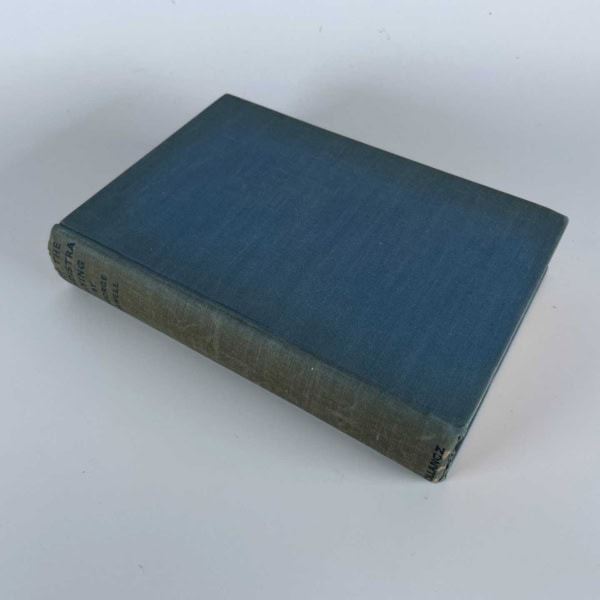
George Orwell – Keep The Aspidistra Flying – First Edition 1936

George Orwell – Keep The Aspidistra Flying – First Edition 1936
£1,350.00
£1,350.00
A first edition, first printing published by Gollancz in 1936. A very good book without inscriptions. Two small tape burns to the endpapers. Amazingly clean within, without foxing. Browning to the spine and to the board edges. Spine tips a little worn. No dust wrapper. Scarce.
Keep the Aspidistra Flying (1936) by George Orwell is a satirical novel that explores the struggles of Gordon Comstock, a disillusioned poet who rejects the materialistic society of 1930s England. Gordon quits his decent job to work in a low-paying bookshop, determined to escape the “money god” that he believes dominates people’s lives. However, his principled stand against capitalism leads him into deeper poverty, frustration, and isolation. The aspidistra, a hardy houseplant symbolizing respectability and middle-class values, represents the very bourgeois ideals Gordon despises. Despite his efforts to rebel, Gordon eventually realizes that his disdain for money has trapped him in misery. In the end, he surrenders to societal norms, accepting a steady job, marriage, and the aspidistra as symbols of compromise. The novel critiques both the perils of poverty and the inescapable influence of societal expectations.
(We don't keep all of our stock in the shop, so send us an email if you're planning a trip to see a particular author or book.)
- Description
Description
A first edition, first printing published by Gollancz in 1936. A very good book without inscriptions. Two small tape burns to the endpapers. Amazingly clean within, without foxing. Browning to the spine and to the board edges. Spine tips a little worn. No dust wrapper. Scarce.
Keep the Aspidistra Flying (1936) by George Orwell is a satirical novel that explores the struggles of Gordon Comstock, a disillusioned poet who rejects the materialistic society of 1930s England. Gordon quits his decent job to work in a low-paying bookshop, determined to escape the “money god” that he believes dominates people’s lives. However, his principled stand against capitalism leads him into deeper poverty, frustration, and isolation. The aspidistra, a hardy houseplant symbolizing respectability and middle-class values, represents the very bourgeois ideals Gordon despises. Despite his efforts to rebel, Gordon eventually realizes that his disdain for money has trapped him in misery. In the end, he surrenders to societal norms, accepting a steady job, marriage, and the aspidistra as symbols of compromise. The novel critiques both the perils of poverty and the inescapable influence of societal expectations.

